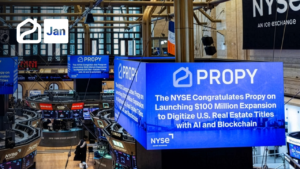
Anyone who follows our blog already understands the fundamental benefits of blockchain technology and how it is transforming the real estate industry. In this article, we will review the full range of innovation that the technological breakthrough is bringing to the real estate industry. More specifically, we will take an in-depth look at five different ways in which distributed ledgers and real estate work together.
Cutting out the Middleman
Real estate costs rise when there is a high number of intermediaries that end up getting involved in a property sale. Real estate transaction management platforms that are backed by blockchain technology can use smart contracts to fulfill the roles of some intermediaries. The automation helps reduce costs that would otherwise be spent on extra parties that participate in the closing process.
Increasing Liquidity
Stocks are considered liquid assets, as they can be bought and sold in seconds. Houses, on the other hand, can take weeks or months to sell and are illiquid assets. With blockchain technology, however, the game is starting to change. Tokenized properties can be sold in short amounts of time, just like stocks or bonds.
Introducing Fractional Ownership
In the traditional real estate world, a unit is typically owned by a single party (a person or firm). With blockchain and real estate, sophisticated platforms can be built to share ownership among multiple parties. They could allow someone without much money to be able to profit from real estate ownership and avoid managing the properties by themselves (such as leasing and maintenance).
Decentralizing Records and Communications
On blockchain-based real estate platforms, records and communications are accessible and securely stored on the blockchain. Smart contracts are becoming admissible as records in parts of the United States. The more decentralized structure that blockchain technology brings changes the game for sellers, buyers, agents, brokers, governing authorities, and other parties.
Blockchain and Propy
Propy’s Transaction Management Platform is one example of a real estate platform that utilizes blockchain technology in many areas. Propy’s platform uses distributed ledgers to boost security, guarantee data integrity, and enable smart contracts to automate workflows. The platform helps clients save time and money and has already tested its technology in Vermont.






